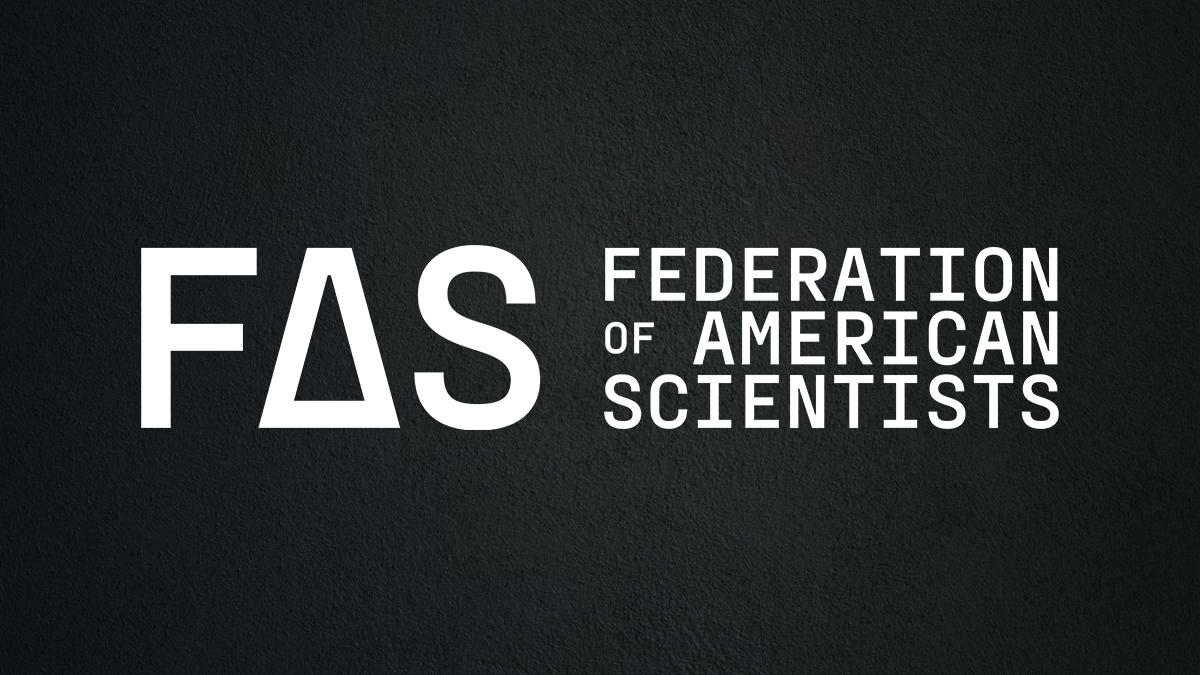
FAS Position on “Schedule PC” and Impact on Federal Scientists
FAS shares the following formal comment in the Federal Register and asks that the scientific community, and the people across the nation who benefit from their research, to do the same.
The Federation of American Scientists opposes the proposed “Schedule Policy/Career” (“Schedule PC”) in present form because it rescinds civil servant employment protections, placing unnecessary and undesirable political pressure on highly specialized scientific and technical career professionals serving in government.
FAS encourages the Office of Personnel Management to rescind or substantially overhaul the Proposed Rule on Improving Performance, Accountability and Responsiveness in the Civil Service. We ask that OPM respond to the following comments and reflect how it will revise the Proposed Rule or abandon it.
New Employment Category is Unnecessary
Instead of creating a new employment category – the Schedule P/C for federal civil servants – the same goals can be accomplished by requiring agencies to regularly review and update critical elements in the performance appraisal system and their rating factors. Changing performance elements will have the impact of ensuring attention to accountability and responsiveness to policy without the ambiguity or determining assignment to the Schedule or the taxpayer expense of defending it.
The Administration is already taking this action by changing the performance appraisal system for the Senior Executive Service to make senior executives more responsive to Executive-branch priorities and policies. FAS advocates for updates to performance standards and rating factors appropriate for non-executives–based on the best available evidence–to achieve the intended accountability and responsiveness goals in this Proposed Rule.
Proposed Rule Conflates Accountability with Administration
The Proposed Rule makes several errors in interpretation of the Civil Service Act of 1978, including the one potentially most detrimental to scientific enquiry, innovation, and exploration:
- The proposed rule is about accountability to the President and his/her Administration policies, not about performance on the job and accountability to the Constitution. By conflating the two, Schedule P/C takes away individual appeal rights for anyone reassigned to this categorization rather than focusing on removing poor performers. An employee’s poor performance is more commonly related to a lack of quality, accuracy, and/or timeliness of their job tasks, according to the U.S. Merit Systems Protection Board. As written, Schedule P/C also discourages dissent, evidence-based policymaking, performance management to understand and track results, and program evaluation to understand outcomes.
- The proposed rule newly defines Policy-Influencing Roles for merit-based civil servants, while underutilizing existing regulations for other Policy-Making roles like political appointees and those with excepted service employment.
- Newly designating “Policy-influencing” positions as Schedule P/C provides such a breadth of interpretation for federal agencies that it could encompass most federal jobs, which currently rely on a non-partisan, merit based civil service and their associated civil service protections. Already, a Social Security Administration (SSA) leader has voiced the intent to designate nearly all SSA career employees as Schedule P/C. Furthermore, the lack of guidance to agencies in identifying “policy influencing” roles will create inconsistencies in its application across agencies and confusion in comparing similar occupations and their duties.
- Moreover, the Proposed Rule deviates from the accepted definitions for “policy determining,” “policy advocating,” and “policy influencing” roles identified in the Civil Service Act of 1978, and assigned to political appointees and excepted service employment categories. If the proposed rule were limited to “policy determining” and “policy making”, most of these positions would already be part of the Senior Executive Service (SES). These federal employment Schedules already carry the requisite responsiveness and accountability to Administration policies and priorities needed to ensure alignment of federal programs with legislative and executive branch intent.
- Newly designating “Policy-influencing” positions as Schedule P/C provides such a breadth of interpretation for federal agencies that it could encompass most federal jobs, which currently rely on a non-partisan, merit based civil service and their associated civil service protections. Already, a Social Security Administration (SSA) leader has voiced the intent to designate nearly all SSA career employees as Schedule P/C. Furthermore, the lack of guidance to agencies in identifying “policy influencing” roles will create inconsistencies in its application across agencies and confusion in comparing similar occupations and their duties.
To ensure an energy transition that brings broad based economic development, participation, and direct benefits to communities, we need federal policy that helps shape markets. Unfortunately, there is a large gap in understanding of how to leverage federal policy making to support access to capital and credit.
OPM’s new HR 2.0 initiative is entering hostile terrain. Those who have followed federal HR modernization for years desperately want this effort to succeed.
This rule gives agencies significantly more authority over certain career policy roles. Whether that authority improves accountability or creates new risks depends almost entirely on how agencies interrupt and apply it.
Our environmental system was built for 1970s-era pollution control, but today it needs stable, integrated, multi-level governance that can make tradeoffs, share and use evidence, and deliver infrastructure while demonstrating that improved trust and participation are essential to future progress.